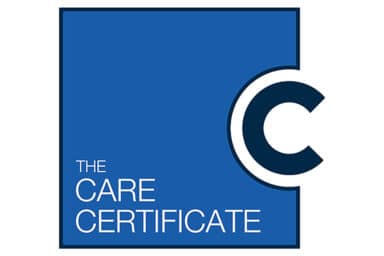Our Level 2 Certificate in Awareness and Prevention of Falls (RQF) is an accredited qualification designed to equip you with essential knowledge and skills for falls prevention in health and social care settings.
This qualification offers a comprehensive distance learning experience with detailed modules, complete with assignments, workbooks, and specialised resources, all aimed at enhancing your understanding and implementation of falls prevention methods. It covers the legislative context of falls prevention, addressing safeguarding, health and safety, as well as moving and handling. Additionally, it examines the multitude of factors that contribute to falls, including medical, sensory, psychological, and lifestyle considerations, as well as environmental hazards and dangerous practices.
This certificate is particularly beneficial for health and social care professionals seeking to deepen their expertise in falls prevention. By the end of the course, you will have acquired the knowledge and practical abilities to proficiently manage falls prevention in your professional role.
Course Details
Qualification Name: Level 2 Certificate in the Awareness and Prevention of Falls (RQF)
Accreditation: iCQ OfQual recognised qualification
OfQual Qualification Accreditation Number (QAN): 603/4859/8
Average time to completion: 4 to 6 weeks
Course Content
Mandatory Units
- Module 1 – Understanding the Context of Falls: This module covers the legislative framework surrounding falls prevention, including safeguarding, health and safety, and moving and handling. It also delves into understanding the causes and consequences of falls, their impact on individuals and healthcare services, and the benefits of falls awareness and prevention programs.
- Module 2 – Understanding the Factors and Risks of Falls: This module explores the factors contributing to falls, including medical, sensory, psychological, and lifestyle aspects. It discusses environmental risks, unsafe practices, and how risk profiles are used to assess fall likelihood.
- Module 3 – Understanding the Assessment, Recording, and Reporting Requirements of Falls: This module explains the multi-factorial approach to falls prevention, emphasising the importance of thorough assessments and accurate record-keeping within legal guidelines. It also covers learning from falls, effective risk assessments, and available multi-agency support.
- Module 4 – Understanding Best Practice in Relation to Falls Management: This module outlines interventions to reduce fall risks, both at the individual and environmental levels. It discusses assistive technologies, exercise programs, and strategies for minimising harm during falls, including immediate care and support.
Enrolment and Delivery
Please use our enquiry form or contact us by telephone if you have any queries about this qualification or would like to express an interest to enrol onto this course. A member of our team will be happy to answer any questions, help to make sure this course is right for you and/or your staff team, and talk you through what is involved in enrolment and course completion.
Upon enrolment, you will be assigned a personal tutor who will assist you through achieving successful and meaningful completion of your award. All of the electronic resources, workbooks and assignments required for you to complete the course will be emailed to you for you to commence working with at a time of your convenience. Your tutor will work with you to set targets and milestones that are achievable for you and will check in with you regularly, providing assistance whenever necessary.
On successful completion of your award, your assessor will coordinate with the awarding body for the issuance of your certificates, which will be promptly delivered to you.
Pricing
Including Assignment, Workbook and Resources:
The full cost of this qualification is £150 per person which is duly invoiced at the point of enrolment.
Upon completion and certification of this qualification, the certificate(s) for you/your staff members will be sent to you.
Quality Assurance
This Level 2 Certificate in the Awareness and Prevention of Falls is accredited to the Regulated Qualification Framework (RQF), the new framework for creating and accrediting qualifications in England, Wales and Northern Ireland. The Office of Qualifications and Examinations Regulation (OfQual) regulates this qualification, examinations and assessments in England.
Complete Training is an approved registered centre with the OFQUAL regulated awarding organisation ‘I Can Qualify‘ (iCQ). All our qualifications are subject to both internal and external quality assurance processes to ensure we meet all of the awarding body specifications. All course materials are developed to meet the specific outcomes that make up the full qualification.
Enquiry Form
At Complete Training, we understand that choosing the right training provider is an important decision, and we’re here to support you every step of the way. Your enquiry is important to us, and we want you to feel completely at ease reaching out to us.
Rest assured, there’s absolutely no pressure here. Feel free to ask us anything. We’re here to provide you with the information you need, without any obligation to commit.




